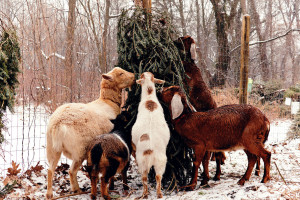Q&A: Malcolm Kenyatta on Being Openly LGBTQ in Local Politics

Malcolm Kenyatta, 25, is known as “North Philly’s biggest fan.”
How would you best describe your career?
At my core, I’m just a kid from North Philly who refuses to leave. I was born and raised in the neighborhood, went to college here, left for a year or so, and then came back first chance I got. I’m also a believer in the power of words to make change – politically or artistically. My passion in the arts goes back to college, when I founded a performance group, Babel (Temple’s poetry collective). For the past two years I’ve been one of the producers for a play, You Gotta Eat Dirt Before You Die, and used it as a platform to discuss and raise awareness around HIV/AIDS. Politically, at 25 I’m the youngest member of the Liberty City LGBT Democratic Club board of directors, a Point Foundation mentor, was recently elected to the board of directors of Smith Playground and appointed president of the Philadelphia NOW (National Organization for Women) Education Fund, which raises awareness about issues involving women and families.
What made you enter politics?
My grandfather Muhammad Kenyatta was a towering figure in the civil rights movement, worked with the UN, and ran for the Democratic nomination for mayor of Philadelphia in 1975. I believe like he did in economic empowerment for distressed communities, education as a ladder out of poverty, the importance of inspiring our children, and the list could literally go on – he was that passionate, dogged, and smart. I’m humbled by his legacy and it’s driven me to be extremely engaged in the political process. I’ve worked as a volunteer, consultant, and most recently serving as campaign manager for Sherrie Cohen’s City Council at-large bid last year.

Kenyatta with Sherrie Cohen.
What was it like working on Sherrie Cohen’s campaign?
A dream. It was one of those seasons in my life that I couldn’t have planned, but made a huge impact nonetheless. It’s rare in this business that you get to work with a candidate that you truly (in your heart of hearts) believe in, and I’m proud of the campaign we ran and the issues we raised. Whether it was investing in neighborhood schools, standing up to slumlords, or raising wages for working families, we took on the tough fights. I’d also point out that people tend to forget that Sherrie was the first openly gay candidate endorsed by the Philadelphia Democratic Party – that’s huge. She was also the only candidate to be endorsed by every progressive group that endorsed that cycle – also huge. Traveling around the city with her, I got to see that the issues we’re facing in North Philly aren’t unique to us, and people around the city are raising the same issues I hear from my neighbors – jobs, quality schools, and a sense of safety. I left that race feeling like not only could we tackle these problems, but we have to, and I haven’t slowed down.
How’s being openly gay in the political scene been like?
In Philly, it’s been rather easy — we live in a relatively socially liberal city and most of my peers are solid progressives. I think the biggest thing is what you bring to the position; as a gay, black male from one of the least invested parts of the city gives you a good handle on what it means to be marginalized. These experiences make me a passionate advocate for many of the progressive causes I champion. I also bring a different perspective in regards to North Philly. The people of North Philly don’t quit, they don’t stay there when they’re knocked down, and they care deeply about this community, and I get to share that story.
Given that Philly is nationally known for its LGBTQ-friendliness, what will it take to actually elect openly gay City Council members?
That’s a tough question, but two things come to mind. First, we need the right candidate/message. Second, we need the entire community to make that race a priority — financially and otherwise. In one of the largest cities in the country and the birthplace of our democracy, I find it frustrating that we haven’t elected more openly LGBT candidates. We’re lucky to have had a number of strong allies in City Council and in the mayor’s office, but frankly it’s not good enough – its way past time. There’s a quote I love: “If you aren’t at the table you’re on the menu.” We have to demand a seat at the table — not just for our citizens, but to lead the country in electing more diverse representatives. That means more women, more people of color, and of course more LGBT candidates, and I think it can happen if we as a community support them when they run.
What other projects are you currently working on?
On February 9th, I’ll be hosting a candidate meet and greet in North Philadelphia and registering people to vote. This will be the first time in Southeastern Pennsylvania that all three Democratic candidates for the U.S. Senate (Katie McGinty, John Fetterman, and Joe Sestak) will be attending the same forum. It’ll also include the candidates for the 2nd Congressional District, state Senate, and state House. I want people in my neighborhood to be able to speak directly with the candidates about their concerns and hopes. The event is free and open to the public, and those interested can get tickets online.


